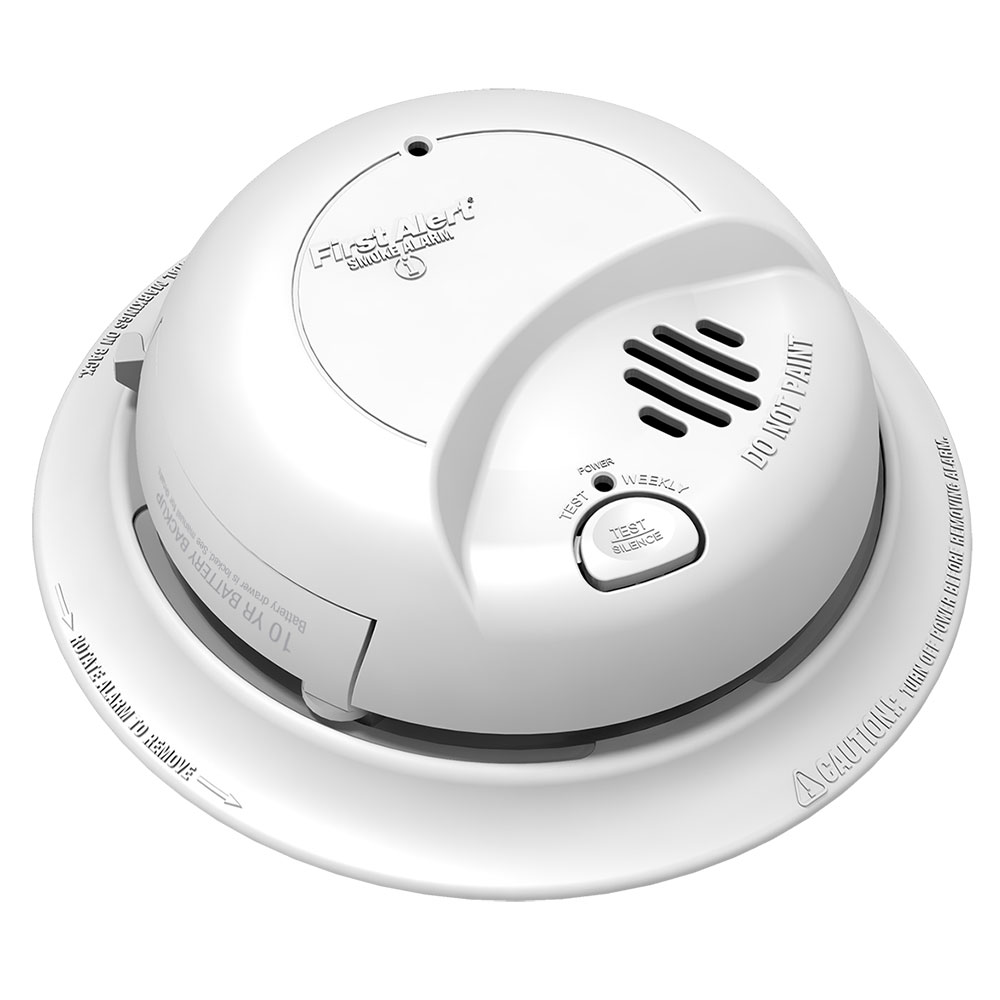Smoke Detector Installations
About Smoke Detector Installations

Smoke detectors are the most important safety feature in your house. A smoke detector that is working properly can increase your family’s chances of surviving a house fire. Sadly, most home fire fatalities occur in homes that do not have working smoke detectors. In fact, reports show that three out of five deaths caused by home fires where due to homes that had no smoke alarms (38%) or smoke alarms that were not working (21%).
In many cases, homes have smoke detectors or smoke alarms, but they are not working properly or do not have batteries. Another problem are the detectors being put in the wrong places. An improperly placed smoke detector is just as dangerous as one that isn’t working at all.
Ionization Smoke Detectors
Ionization smoke alarms are generally more responsive to flaming fires.
How they work: Ionization-type smoke alarms have a small amount of radioactive material between two electrically charged plates, which ionizes the air and causes current to flow between the plates. When smoke enters the chamber, it disrupts the flow of ions, thus reducing the flow of current and activating the alarm. Download this chart on ionization smoke alarms (PDF, 943 KB).
Photoelectric Smoke Detectors
Photoelectric smoke alarms are generally more responsive to fires that begin with a long period of smoldering (called “smoldering fires”).
How they work: Photoelectric-type alarms aim a light source into a sensing chamber at an angle away from the sensor. Smoke enters the chamber, reflecting light onto the light sensor; triggering the alarm. Download this chart on photoelectric smoke alarms (PDF, 782 KB).
For each type of smoke alarm, the advantage it provides may be critical to life safety in some fire situations. Home fatal fires, day or night, include a large number of smoldering fires and a large number of flaming fires. You can not predict the type of fire you may have in your home or when it will occur. Any smoke alarm technology, to be acceptable, must perform acceptably for both types of fires in order to provide early warning of fire at all times of the day or night and whether you are asleep or awake.
Smoke Detector Installation
You can install battery-powered smoke detectors yourself. Just make sure you place them in effective locations. If you are opting for the detectors that are wired directly into your home’s main power, it is best to have the installation completed by a certified electrician.
Smoke Detector Installations FAQs
How can I get the best protection from my smoke detector?
You can maximize your smoke detectors by doing the following;
- Replace batteries every 6 months or at least every 12 months
- The smoke detectors are properly located
- Families with somebody who is hearing impaired should have special detectors designed for those with hearing impairments
- Replace smoke detectors every 8 to 10 years
- If using a lithium battery, which lasts up to 10 years, replace the entire smoke detector at the 10 year mark or when the battery dies
- Ensure hard-wired systems have backup batteries; the batteries should be replaced annually
What is the cost of a smoke detector?
The cost of a smoke detector ranges from $10 to $40 depending on the type. If you are opting for hard-wired detectors this does not include the installation cost.
Where should a smoke detector be placed?
If you are installing your own battery-powered smoke detectors, follow these guidelines.
- A smoke detector should be installed on each level of the home
- In each bedroom
- Within 10 to 15 feet of each bedroom door
- On the ceiling or high up on the walls where the smoke will rise
- Place the detectors away from ceiling fans or windows that will blow the smoke away from the detector
- Place the detector away from the stove or toaster where it may be set off often, this applies to the bathroom where hot showers could set it off
- Hard-wired detectors should not be installed on a circuit that can be shut off with a switch
If you are not sure about the placement of your smoke detectors, give Red Elk a call for a free consultation.
My smoke detector won’t stop chirping. Can I make it stop?
It’s likely your smoke detector needs a new battery. Smoke detectors usually take a 9V battery. If the chirping is still happening after the battery is changed, it may still retain some errors from the old battery. If this is the case, you must clear the errors by resetting the alarm. This is usually done by holding down the test button until the errors are cleared.
What is a hard wired smoke alarm?
A hard wired smoke alarm, usually paired with a CO detector, are tied into your home or apartment’s wiring. These types of alarms usually require the help of a electrical professional.
